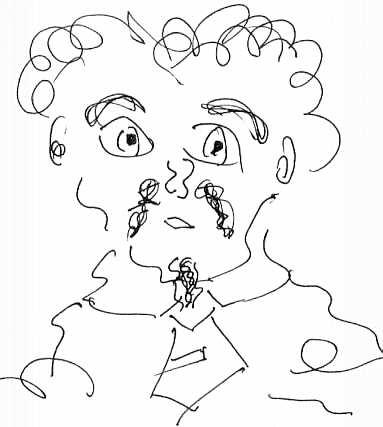Notebook
I really need to do something about the piles of books around here — like add to them. Yesterday, while I was in West Salem, I stopped at a used book store called Readers Guide to Recycled Literature in order to rummage through the cardboard boxes of free books they keep on the sidewalk near the entrance. Not that I’m a cheapskate, mind you. I have gone inside the store many times and have bought some nice books there, and also the print of a studio photo of William Saroyan taken in 1934 when he first became famous. No, that’s not quite right. My mother bought that photo a dozen or so years ago when we were in the store together, then put it in a handsome black frame and gave it to me a few months later. But I got even with her soon thereafter when I bought a copy of Boris Pasternak’s Doctor Zhivago and gave it to her for Christmas. The book was used, but illustrated and in perfect condition. Anyway. Where was I? Oh, yes. Books. I don’t have enough of them. So when I was rummaging through the ones outside the store, it was only logical that I would latch onto a hardbound copy of The Book of Living Verse, published in 1945. The book contains a passel of British authors dating back to Chaucer, then proceeds through the centuries with a wealth of work by all sorts of poets I have heard about but never really read, with a few American authors thrown in for good measure. As an extra bonus, there is a lot of handwriting on the pages that I can fall back on if the poetry turns out to be boring. While writing in books is something I don’t believe in, I don’t mind running across a few scribbles in certain volumes — especially the ones I don’t have to pay for. My copy of The Book of Living Verse was obviously owned by a college student who used the generous margins for making notes. On Page 238, for instance, adjacent to Coleridge’s “The Rime of the Ancient Mariner” is inscribed “Mariner has sin of pride” in all capital letters. On Page 174, I find the word “Poverty” and a connecting line drawn to the word “penury” in the text of Thomas Gray’s “Elegy” (written in a country churchyard). On the one hand, these intrusions are a nuisance; on the other, I find my student’s labor quite inspiring. He was there. He was thinking — perhaps about his girlfriend (this is obviously a man’s handwriting), who has just taken her first job as a bank teller and has therefore found it necessary to buy a whole new wardrobe. What became of him? And her? I can only hope they have been happy together and are presently enjoying the company of their children, grandchildren, and great-grandchildren, who know far more about computers than real life, but that’s okay, because they are all good kids, they really are, even if they do track mud into the house and are too loud on occasion, bless their hearts.

Also by William Michaelian
POETRY
Winter Poems
ISBN: 978-0-9796599-0-4
52 pages. Paper.
——————————
Another Song I Know
ISBN: 978-0-9796599-1-1
80 pages. Paper.
——————————
Cosmopsis Books
San Francisco
Signed copies available
Main Page
Author’s Note
Background
A Listening Thing
Among the Living
No Time to Cut My Hair
One Hand Clapping
Songs and Letters
Collected Poems
Early Short Stories
Armenian Translations
Cosmopsis Print Editions
Interviews
News and Reviews
Highly Recommended
Let’s Eat
Favorite Books & Authors
Useless Information
Conversation
Flippantly Answered Questions
E-mail & Parting Thoughts
Old Notes
Current Entry